A carbon fiber strong enough to protect airplanes from lightning strikes, light enough to create performance skis
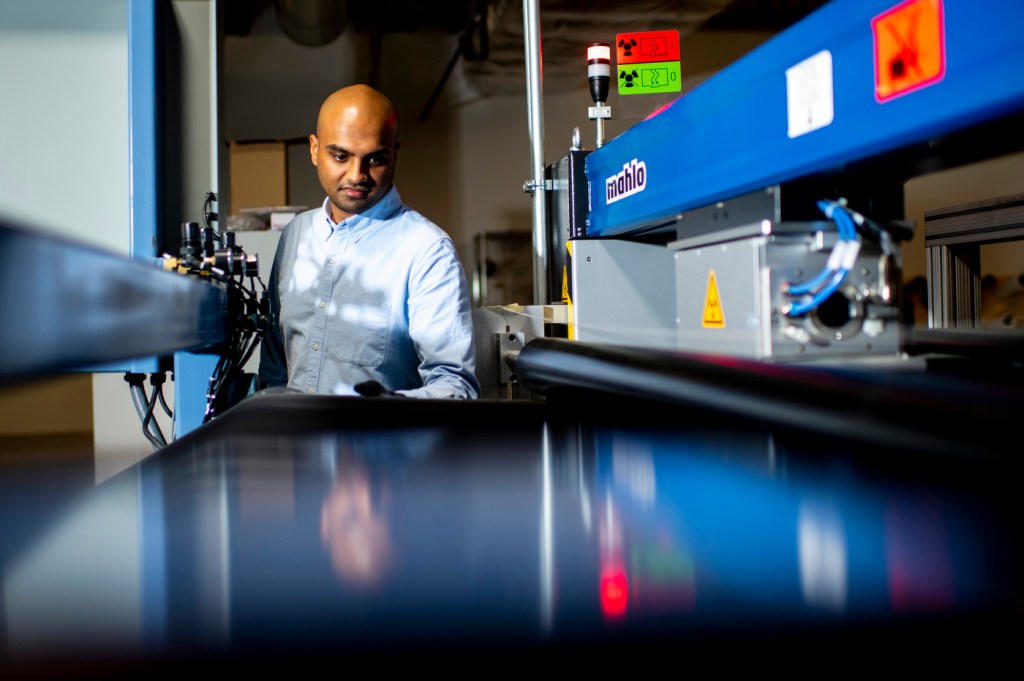
Anvesh Gurijala is well acquainted with his tweezers. “Pulling carbon fiber splinters out of my hands is a daily activity,” he says.
Gurijala is accustomed to working with old scraps of carbon fiber, the kind that easily shed needle-sharp shards that can puncture the skin. He’s the chief executive officer of Boston Materials, a company that manufactures a new type of carbon fiber from recycled materials.
“With the finished product, of course we don’t get splinters when we handle the materials,” says Gurijala, who graduated from Northeastern in 2015 with a degree in mechanical engineering. Instead, he compares the carbon fiber his company produces to something much softer on the skin.
This material is sturdy enough to protect airplanes from lightning strikes thanks to the unique process the company uses to align the fibers. But its toughness is belied by its soft, delicate feel and shimmery luster.
“The end result is kind of like velvet,” Gurijala says. “If you look at velvet up close, it has these tiny fuzzy spikes that all go in the same direction. Visually, what we’re creating is quite similar. We align the fibers vertically.”
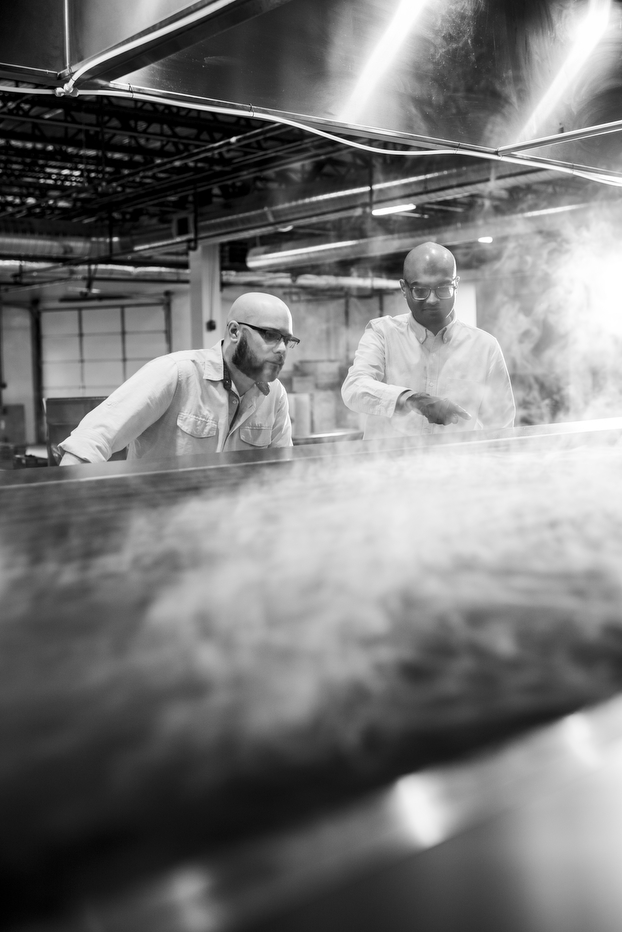
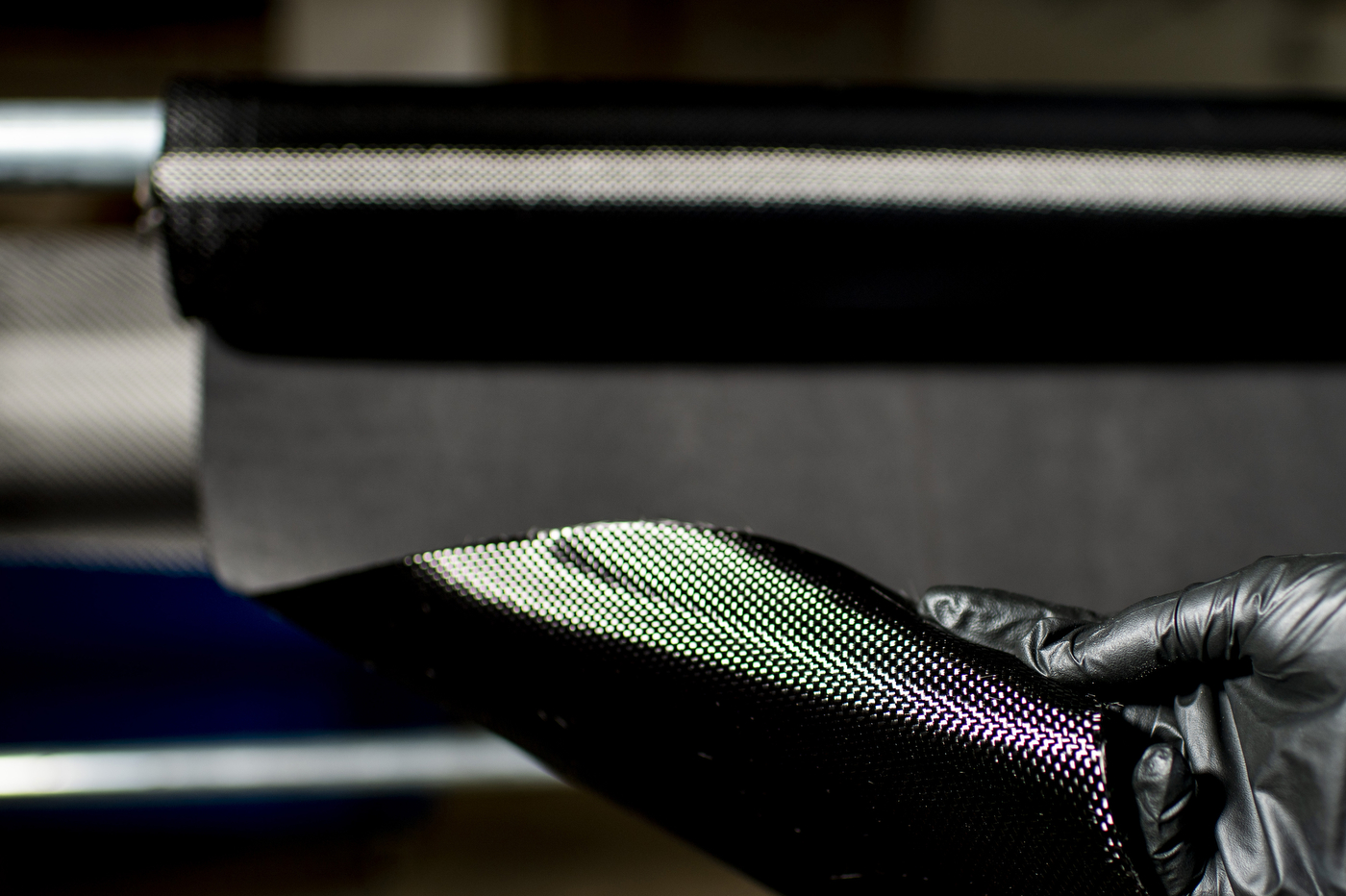
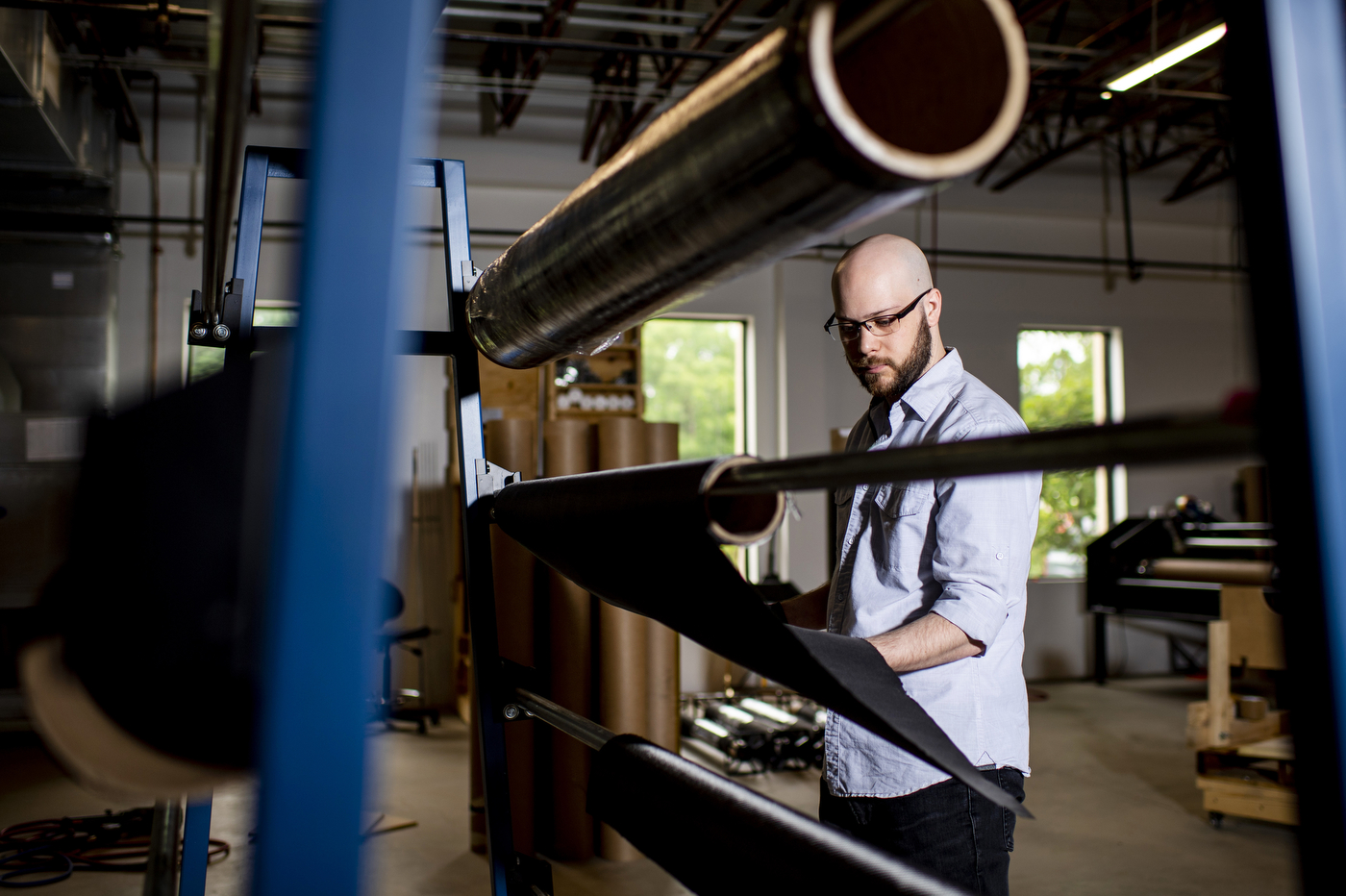
But why does it matter if the hair-like particles that comprise the carbon fiber are facing up or down, left or right?
Think about children snapping wooden boards in karate class. A child would never be able to crack the wood lengthwise. But with one strike to the center of the plank, a child can snap the board easily. The wood breaks when pressure is applied against the grain, or in the opposite direction of the fibers.
“Carbon fiber is a lot like wood,” Gurijala says. It’s strong, but only from certain angles.
But by aligning short, vertical fibers throughout the material instead of layering long, tenuous fibers horizontally, like the fibers in wood, Boston Materials has produced a new type of carbon fiber that is stronger and lighter than other carbon fibers.
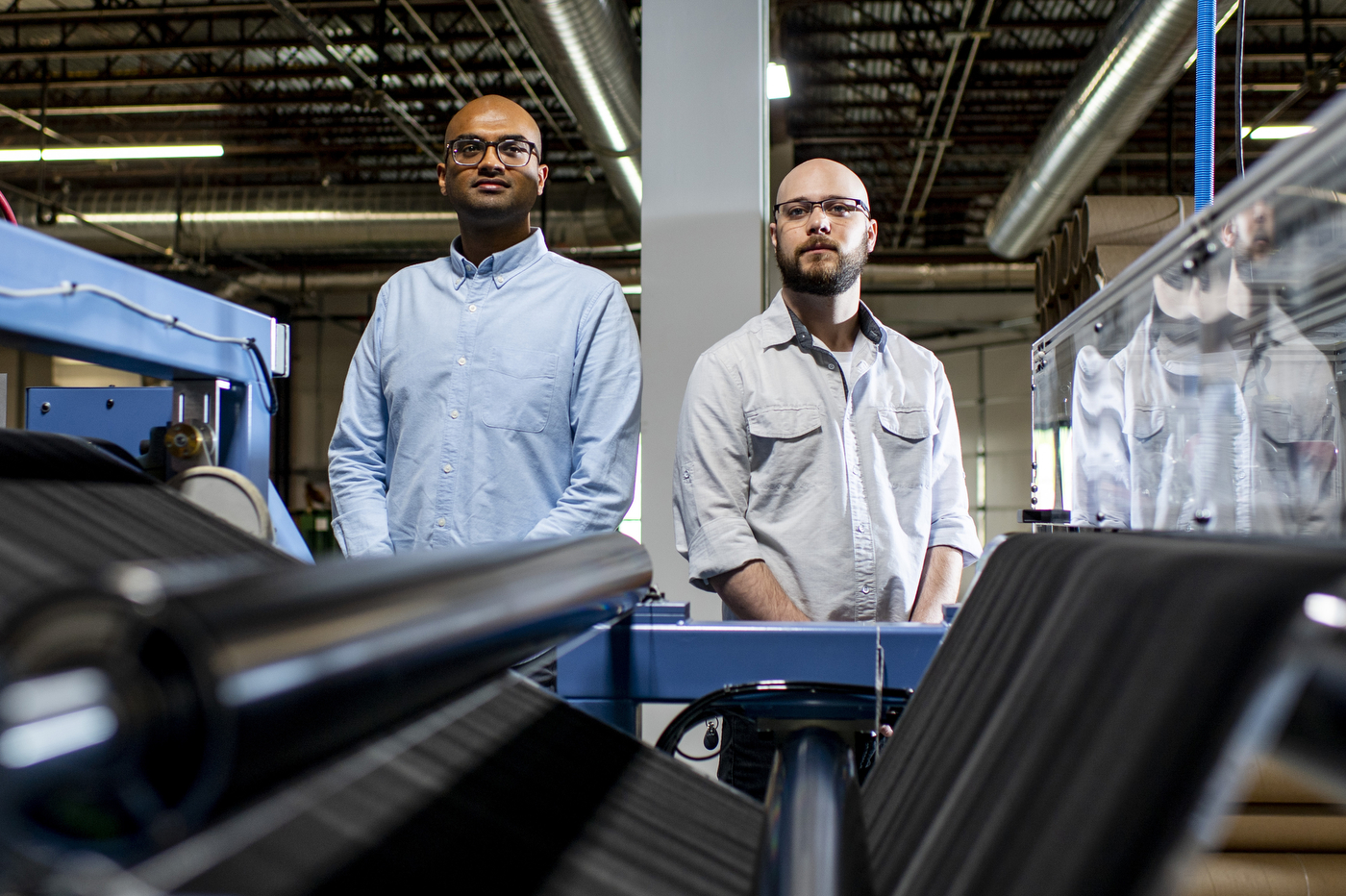
Currently, Boston Materials, which is based outside of Boston in Billerica, Mass., provides carbon fiber for a variety of products including airplane parts, computer hardware, prosthetics, and skis. In the future, Gurijala hopes to expand more into the consumer electronics industry.
“Our materials create a robust surface,” Gurijala says. “It’s scratch-resistant, smooth, and it feels like a premium product, which is good for the outside of consumer electronic devices.”
The added bonus? Boston Materials uses 100 percent reclaimed materials, an impressive statistic especially in an industry that creates so much waste. “The carbon fiber scrap rate is very high,” Gurijala says. “About 30 percent of what people make ends up in a landfill.”
Instead, Boston Materials uses carbon fiber by-products that would end up in the trash. “It was a happy surprise,” says Gurijala. “We have to use milled carbon fiber, which is basically just carbon fiber that’s been ground up to break down more efficiently in landfills.”
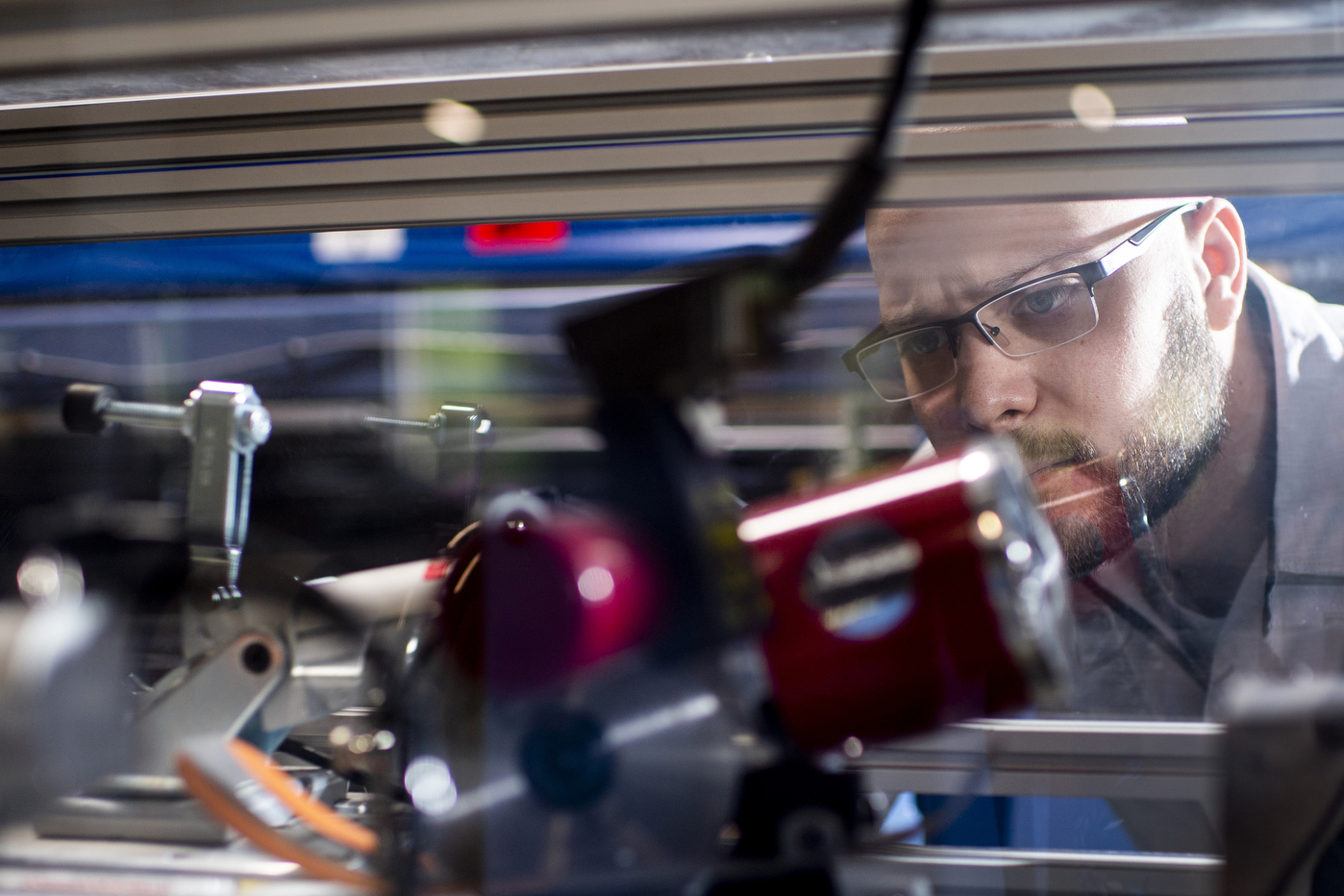
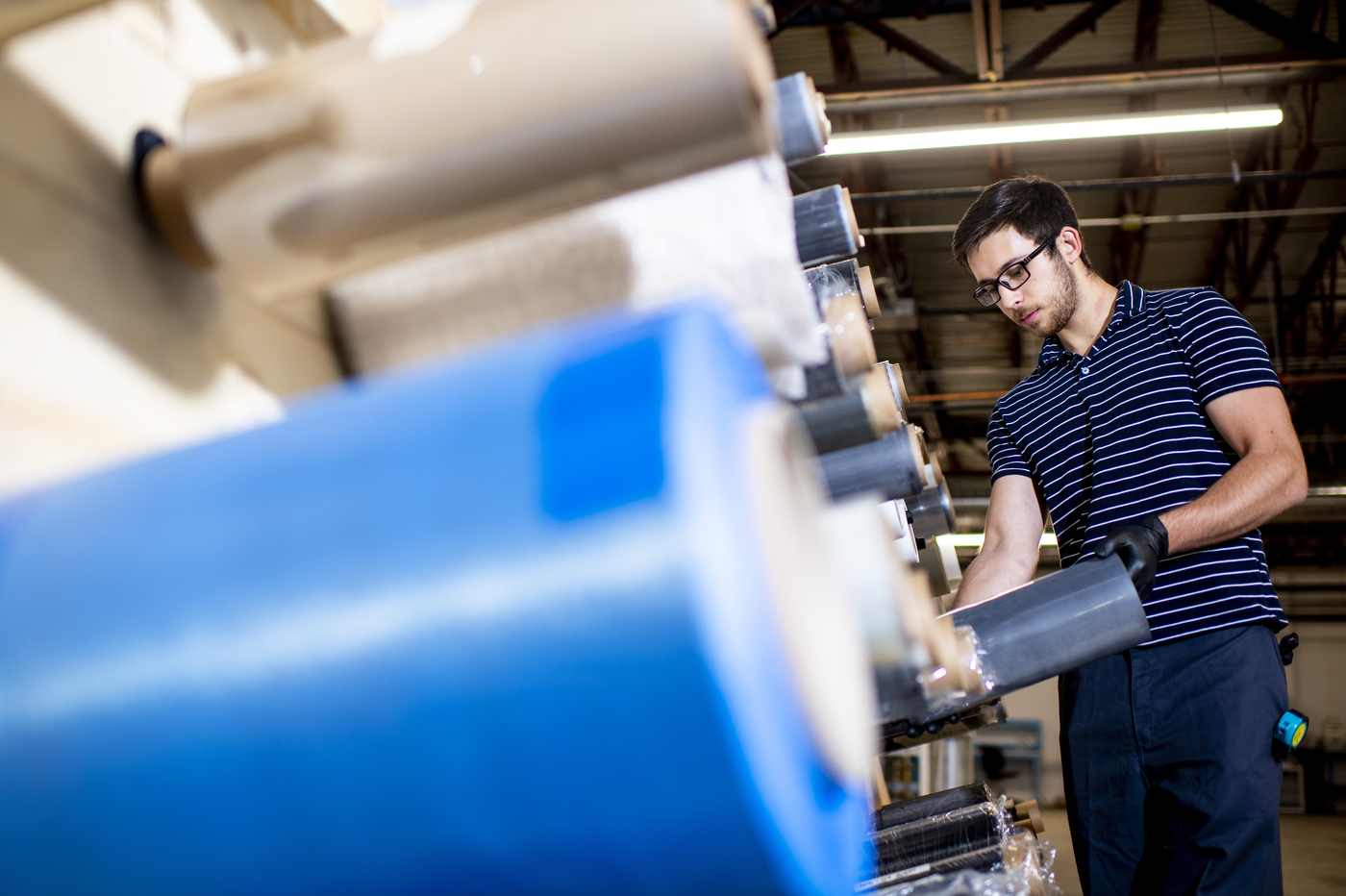
During his undergraduate experience, Gurijala was introduced to carbon fiber materials by Randall Erb, associate professor of mechanical engineering at Northeastern and co-founder of Boston Materials.
“When I met Randy in his lab, I knew I had to work with him,” Gurjala says. “I knew this stuff could make a really big difference.”
That was at the end of 2014. By the beginning of 2016, Gurijala, Erb, and Northeastern graduate Michael Segal had co-founded Boston Materials.
“It was so easy to get support from Northeastern, especially considering that we were fresh out of college,” Gurijala says. Through the Venture Mentoring Network, the co-founders were advised on how to create a business model and pitch investors. “They even connected us to our first investor. I’m not sure we could have started Boston Materials without the support of the whole entrepreneurial ecosystem at Northeastern.”
Boston Materials, which recently raised $8 million from investors, is looking to expand its team.
“We’re looking to grow across the company, from the manufacturing team, to the engineering team, to the technical sales team,” Gurijala says. “It’s an exciting time. There’s so much momentum behind us right now.”
For media inquiries, please contact media@northeastern.edu.
proident, sunt in culpa qui officia deserunt mollit anim id est laborum.





